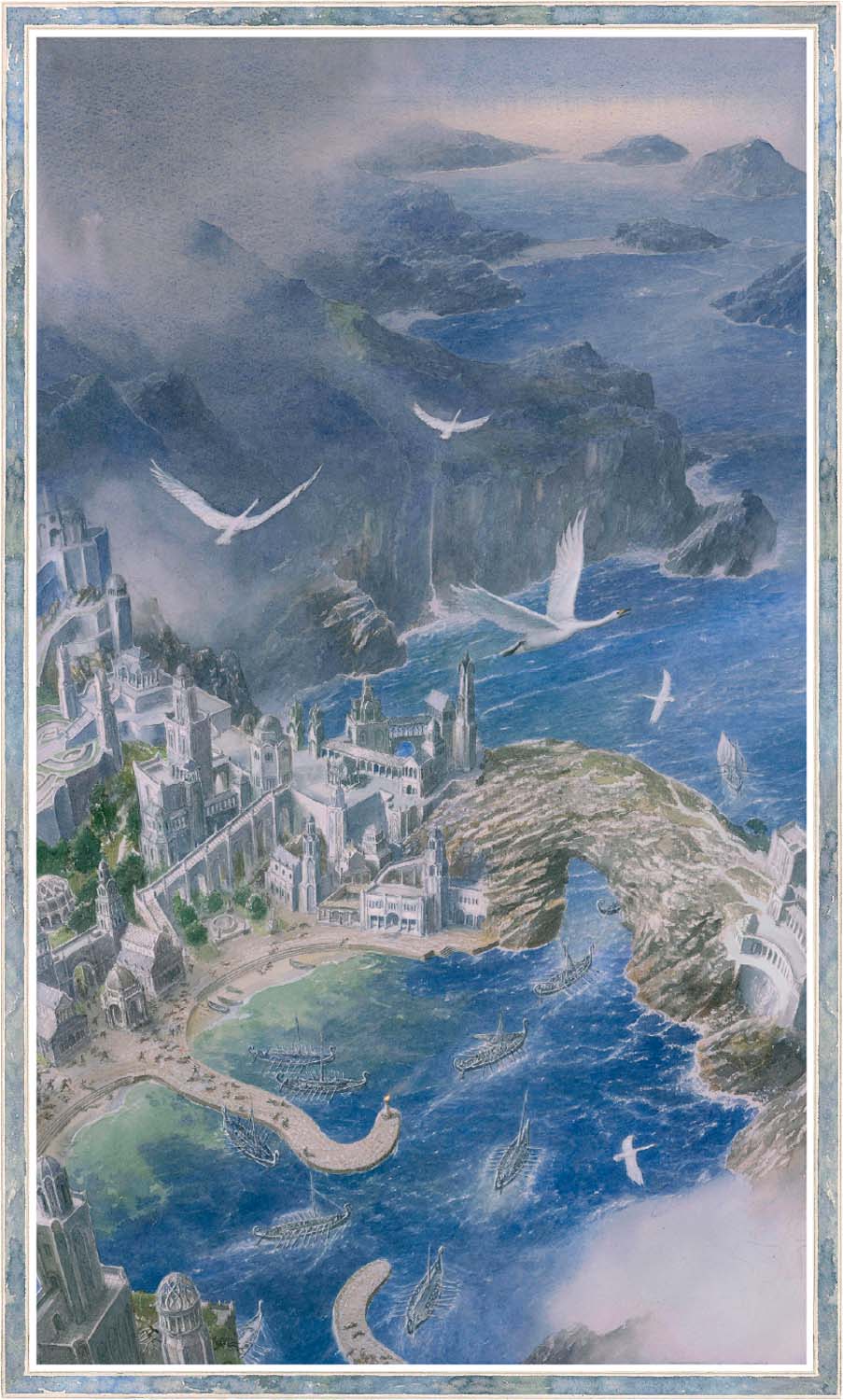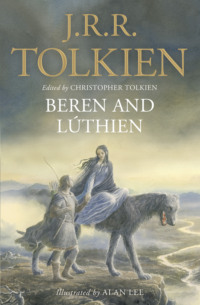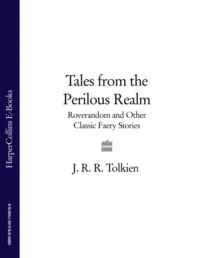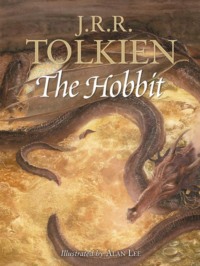
Полная версия
The Fall of Gondolin
It must however be mentioned in this connection that many of the changes to the original text had been made before my father, in the spring of 1920, read the Tale to the Essay Club of Exeter College at Oxford. In his introductory and apologetic words, explaining his choice of this work in place of an ‘Essay’, he said of it: ‘It has of course never seen the light before. A complete cycle of events in an Elfinesse of my own imagining has for some time past grown up (rather, has been constructed) in my mind. Some of the episodes have been scribbled down. This tale is not the best of them, but it is the only one that has so far been revised at all and that, insufficient as that revision has been, I dare read aloud.’
The original title of the tale was Tuor and the Exiles of Gondolin, but my father always later called it The Fall of Gondolin, and I have done the same. In the manuscript the title is followed by the words ‘which bringeth in the Great Tale of Eärendel’. The teller of the tale in the Lonely Isle, on which see Beren and Lúthien here–here, was Littleheart (Ilfiniol), son of that Bronweg (Voronwë) who plays an important part in the Tale.
It is in the nature of this, the third of the ‘Great Tales’ of the Elder Days, that the massive change in the world of Gods and Elves that had taken place should bear upon the immediate narrative of the Fall of Gondolin – and is indeed a part of it. A brief account of those events is needed; and rather than write one myself I think it far better to use my father’s own condensed, and characteristic, work. This is found in the ‘Original Silmarillion’ (also ‘A Sketch of the Mythology’), as he himself called it, which can be dated to 1926, and subsequently revised. I used this work in Beren and Lúthien, and again in this book as an element in the evolution of the tale of The Fall of Gondolin; but I use it here for the purpose of providing a concise account of the history before Gondolin came into being: it also has the advantage of itself deriving from a very early period.
In view of the purpose of its inclusion I have omitted passages that are not here relevant, and here and there made other minor modifications and additions for the sake of clarity. My text opens at the point where the original ‘Sketch’ begins.
After the despatch of the Nine Valar for the governance of the world Morgoth (Demon of Dark) rebels against the overlordship of Manwë, overthrows the lamps set up to illumine the world, and floods the isle of Almaren where the Valar (or Gods) dwelt. He fortifies a palace of dungeons in the North. The Valar remove to the uttermost West, bordered by the Outer Seas and the final Wall, and eastward by the towering Mountains of Valinor which the Gods built. In Valinor they gather all light and beautiful things, and build their mansions, gardens, and city, but Manwë and his wife Varda have halls upon the highest mountain (Taniquetil) whence they can see across the world to the dark East. Yavanna Palúrien plants the Two Trees in the middle of the plain of Valinor outside the gates of the city of Valmar. They grow under her songs, and one has dark green leaves with shining silver beneath, and white blossoms like the cherry from which a dew of silver light falls; the other has golden-edged leaves of young green like the beech and yellow blossom like the hanging blossoms of laburnum which give out heat and blazing light. Each tree waxes for seven hours to full glory and then wanes for seven; twice a day therefore comes a time of softer light when each tree is faint and their light is mingled.
The Outer Lands [Middle-earth] are in darkness. The growth of things was checked when Morgoth quenched the lamps. There are forests of darkness, of yew and fir and ivy. There Oromë sometimes hunts, but in the North Morgoth and his demonic broods (Balrogs) and the Orcs (Goblins, also called Glamhoth or people of hate) hold sway. Varda looks on the darkness and is moved, and taking all the hoarded light of Silpion, the White Tree, she makes and strews the stars.
At the making of the stars the children of Earth awake – the Eldar (or Elves). They are found by Oromë dwelling by the star-lit pool, Cuiviénen, Water of Awakening, in the East. He rides home to Valinor filled with their beauty and tells the Valar, who are reminded of their duty to the Earth, since they came thither knowing that their office was to govern it for the two races of Earth who should after come each in appointed time. There follows an expedition to the fortress of the North (Angband, Iron-hell), but this is now too strong for them to destroy. Morgoth is nonetheless taken captive, and consigned to the halls of Mandos who dwelt in the North of Valinor.
The Eldalië (people of the Elves) are invited to Valinor for fear of the evil things of Morgoth that still wandered in the dark. A great march is made by the Eldar from the East led by Oromë on his white horse. The Eldar are divided into three hosts, one under Ingwë after called the Quendi (Light-elves), one after called the Noldoli (Gnomes or Deep-elves), one after called the Teleri (Sea-elves). Many of them are lost upon the march and wander in the woods of the world; becoming the various hosts of the Ilkorindi (Elves who never dwelt in Kôr in Valinor). The chief of these was Thingol, who heard Melian and her nightingales singing and was enchanted and fell asleep for an age. Melian was one of the divine maidens of the Vala Lórien who sometimes wandered into the outer world. Melian and Thingol became Queen and King of woodland Elves in Doriath, living in a hall called the Thousand Caves.
The other Elves came to the ultimate shores of the West. In the North these in those days sloped westward in the North until only a narrow sea divided them from the land of the Gods, and this narrow sea was filled with grinding ice. But at the point to which the Elf-hosts came a wide dark sea stretched west.
There were two Valar of the Sea. Ulmo (Ylmir), the mightiest of all Valar next to Manwë, was lord of all waters, but dwelt often in Valinor, or in the Outer Seas. Ossë and the lady Uinen, whose tresses lay through all the sea, loved rather the seas of the world that washed the shores beneath the Mountains of Valinor. Ulmo uprooted the half-sunk island of Almaren where the Valar had first dwelt, and embarking on it the Noldoli and Quendi, who arrived first, bore them to Valinor. The Teleri dwelt some time by the shores of the sea awaiting him, and hence their love of it. While they were being also transported by Ulmo, Ossë in jealousy and out of love for their singing chained the island to the sea-bottom far out in the bay of Faërie whence the Mountains of Valinor could dimly be seen. No other land was near it, and it was called the Lonely Isle. There the Teleri dwelt a long age becoming different in tongue, and learning strange music from Ossë, who made the sea-birds for their delight.
The Gods gave a home in Valinor to the other Eldar. Because they longed even among the Tree-lit gardens of Valinor for a glimpse of the stars, a gap was made in the encircling mountains, and there in a deep valley a green hill, Kôr, was built. This was lit from the West by the Trees, to the East it looked out onto the Bay of Faërie and the Lonely Isle, and beyond to the Shadowy Seas. Thus some of the blessed light of Valinor filtered into the Outer Lands [Middle-earth], and falling on the Lonely Isle caused its western shores to grow green and fair.
On the top of Kôr the city of the Elves was built and was called Tûn. The Quendi became most beloved by Manwë and Varda, the Noldoli by Aulë (the Smith) and Mandos the Wise. The Noldoli invented gems and made them in countless numbers, filling all Tûn with them, and all the halls of the Gods.
The greatest in skill and magic of the Noldoli was Finwë’s elder son Fëanor.2 He contrived three jewels (Silmarils) wherein a living fire combined of the light of the Two Trees was set, they shone of their own light, impure hands were burned by them.
The Teleri seeing afar the light of Valinor were torn between desire to rejoin their kindred and to dwell by the sea. Ulmo taught them craft of boat-building. Ossë yielding gave them swans, and harnessing many swans to their boats they sailed to Valinor, and dwelt there on the shores where they could see the light of the Trees, and go to Valmar if they wished, but could sail and dance in the waters touched to light by the radiance that came out past Kôr. The other Eldar gave them many gems, especially opals and diamonds and other pale crystals which were strewn upon the beaches of the Bay of Faërie. They themselves invented pearls. Their chief town was Swanhaven upon the shores northward of the pass of Kôr.
The Gods were now beguiled by Morgoth, who having passed seven ages in the prisons of Mandos in gradually lightened pain came before the conclave of the Gods in due course. He looks with greed and malice upon the Eldar, who also sit there about the knees of the Gods, and lusts especially after the jewels. He dissembles his hatred and desire for revenge. He is allowed a humble dwelling in Valinor, and after a while goes freely about, only Ulmo foreboding ill, while Tulkas the strong, who first captured him, watches him. Morgoth helps the Eldar in many deeds, but slowly poisons their peace with lies.
He suggests that the Gods brought them to Valinor out of jealousy, for fear their marvellous skill, and magic, and beauty, should grow too strong for them outside in the world. The Quendi and Teleri are little moved, but the Noldoli, the wisest of the Elves, become affected. They begin at whiles to murmur against the Gods and their kindred; they are filled with vanity of their skill.
Most of all does Morgoth fan the flames of the heart of Fëanor, but all the while he lusts for the immortal Silmarils, although Fëanor has cursed for ever anyone, God or Elf or mortal that shall come hereafter, who touches them. Morgoth lying tells Fëanor that Fingolfin and his son Fingon are plotting to usurp the leadership of the Gnomes from Fëanor and his sons, and to gain the Silmarils. A quarrel breaks out between the sons of Finwë. Fëanor is summoned before the Gods, and the lies of Morgoth laid bare. Fëanor is banished from Tûn, and with him goes Finwë who loves Fëanor best of his sons, and many of the Gnomes. They build a Treasury northward in Valinor in the hills near Mandos’ halls. Fingolfin rules the Gnomes that are left in Tûn. Thus Morgoth’s words seem justified and the bitterness he sowed goes on after his words are disproved.
Tulkas is sent to put Morgoth in chains once more, but he escapes through the pass of Kôr into the dark region beneath the feet of Taniquetil called Arvalin, where the shadow is thickest in all the world. There he finds Ungoliant, Gloomweaver, who dwells in a cleft in the mountains, and sucks up light or shining things to spin them out again in webs of black and choking darkness, fog, and gloom. With Ungoliant he plots revenge. Only a terrible reward will bring her to dare the dangers of Valinor or the sight of the Gods. She weaves a dense gloom about her to protect her and swings on cords from pinnacle to pinnacle till she has scaled the highest peak of the mountains in the south of Valinor (little guarded because of their height and their distance from the old fortress of Morgoth). She makes a ladder that Morgoth can scale. They creep into Valinor. Morgoth stabs the Trees and Ungoliant sucks up their juices, belching forth clouds of blackness. The Trees succumb slowly to the poisoned sword, and to the venomous lips of Ungoliant.
The Gods are dismayed by a twilight at midday, and vapours of black float in about the ways of the city. They are too late. The Trees die while they wail about them. But Tulkas and Oromë and many others hunt on horseback in the gathering gloom for Morgoth. Wherever Morgoth goes there the confusing darkness is greatest owing to the webs of Ungoliant. Gnomes from the Treasury of Finwë come in and report that Morgoth is assisted by a spider of darkness. They had seen them making for the North. Morgoth had stayed his flight at the Treasury, slain Finwë and many of his men, and carried off the Silmarils and a vast hoard of the most splendid jewels of the Elves.
In the meanwhile Morgoth escapes by Ungoliant’s aid northward and crosses the Grinding Ice. When he has regained the northern regions of the world Ungoliant summons him to pay the other half of her reward. The first half was the sap of the Trees of Light. Now she claims one half of the jewels. Morgoth yields them up and she devours them. She is now become monstrous, but he will not give her any share in the Silmarils. She enmeshes him in a black web, but he is rescued by the Balrogs with whips of flame, and the hosts of the Orcs; and Ungoliant goes away into the uttermost South.
Morgoth returns to Angband, and his power and the numbers of his demons and Orcs becomes countless. He forges an iron crown and sets therein the Silmarils, though his hands are burned black by them, and he is never again free from the pain of the burning. The crown he never leaves off for a moment, and he never leaves the deep dungeons of his fortress, governing his vast armies from his deep throne.
When it became clear that Morgoth had escaped the Gods assemble about the dead Trees and sit in the darkness stricken and dumb for a long while, caring about nothing. The day which Morgoth chose for his attack was a day of festival throughout Valinor. Upon this day it was the custom of the chief Valar and many of the Elves, especially the Quendi, to climb the long winding paths in endless procession to Manwë’s halls upon Taniquetil. All the Quendi and some of the Noldoli (who under Fingolfin dwelt still in Tûn) had gone to Taniquetil, and were singing upon its topmost height when the watchers from afar descried the fading of the Trees. Most of the Noldoli were in the plain, and the Teleri upon the shore. The fogs and darkness drift in now off the seas through the pass of Kôr as the Trees die. Fëanor summons the Gnomes to Tûn (rebelling against his banishment).
There is a vast concourse on the square on the summit of Kôr about the tower of Ing, lit by torches. Fëanor makes a violent speech, and though his wrath is for Morgoth his words are in part the fruit of Morgoth’s lies. He bids the Gnomes fly in the darkness while the Gods are wrapped in mourning, to seek freedom in the world and to seek out Morgoth, now Valinor is no more blissful than the world outside. Fingolfin and Fingon speak against him. The assembled Gnomes vote for flight, and Fingolfin and Fingon yield; they will not desert their people, but they retain command over a half of the Noldoli of Tûn.
The flight begins. The Teleri will not join. The Gnomes cannot escape without boats, and do not dare to cross the Grinding Ice. They attempt to seize the swan-ships in Swanhaven, and a fight ensues (the first between the races of the Earth) in which many Teleri are slain, and their ships carried off. A curse is pronounced upon the Gnomes, that they shall after suffer often from treachery and the fear of treachery among their own kindred in punishment for the blood spilled at Swanhaven. They sail North along the coast of Valinor. Mandos sends an emissary, who speaking from a high cliff hails them as they sail by, and warns them to return, and when they will not, speaks the ‘Prophecy of Mandos’ concerning the fate of after days.

The Gnomes come to the narrowing of the seas, and prepare to sail. While they are encamped upon the shore Fëanor and his sons and people sail off taking with them all the boats, and leave Fingolfin on the far shore treacherously, thus beginning the curse of Swanhaven. They burn the boats as soon as they land in the East of the world, and Fingolfin’s people see the light in the sky. The same light also tells the Orcs of the landing.
Fingolfin’s people wander miserably. Some under Fingolfin return to Valinor to seek the Gods’ pardon. Fingon leads the main host North, and over the Grinding Ice. Many are lost.
Among the poems that my father embarked on during his years at the University of Leeds (most notably the Lay of the Children of Húrin in alliterative verse) was The Flight of the Noldoli from Valinor. This poem, also in alliterative verse, was abandoned after 150 lines. It is certain that it was written at Leeds, in (I think it extremely probable) 1925, the year in which he took up his appointment to the professorship of Anglo-Saxon at Oxford. From this poetic fragment I will cite a part, beginning at the ‘vast concourse on the square on the summit of Kôr’ where Fëanor ‘made a violent speech’, described in a passage of the Sketch of the Mythology p.32. The name Finn at lines 4 and 16 is the Gnomish form of Finwë, the father of Fëanor; Bredhil at line 49 the Gnomish name of Varda.
But the Gnomes were numbered by name and kin,
marshalled and ordered in the mighty square
upon the crown of Kôr. There cried aloud
the fierce son of Finn. Flaming torches
5
he held and whirled in his hands aloft,
those hands whose craft the hidden secret
knew, that none Gnome or mortal
hath matched or mastered in magic or in skill.
‘Lo! slain is my sire by the sword of fiends,
10
his death he has drunk at the doors of his hall
and deep fastness, where darkly hidden
the Three were guarded, the things unmatched
that Gnome and Elf and the Nine Valar
can never remake or renew on earth,
15
recarve or rekindle by craft or magic,
not Fëanor Finn’s son who fashioned them of yore –
the light is lost whence he lit them first,
the fate of Faërie hath found its hour.
Thus the witless wisdom its reward hath earned
20
of the Gods’ jealousy, who guard us here
to serve them, sing to them in our sweet cages,
to contrive them gems and jewelled trinkets,
their leisure to please with our loveliness,
while they waste and squander work of ages,
25
nor can Morgoth master in their mansions sitting
at countless councils. Now come ye all,
who have courage and hope! My call harken
to flight, to freedom in far places!
The woods of the world whose wide mansions
30
yet in darkness dream drowned in slumber,
the pathless plains and perilous shores
no moon yet shines on nor mounting dawn
in dew and daylight hath drenched for ever,
far better were these for bold footsteps
35
than gardens of the Gods gloom-encircled
with idleness filled and empty days.
Yea! though the light lit them and the loveliness
beyond heart’s desire that hath held us slaves
here long and long. But that light is dead.
40
Our gems are gone, our jewels ravished;
and the Three, my Three, thrice-enchanted
globes of crystal by gleam undying
illumined, lit by living splendour
and all hues’ essence, their eager flame –
45
Morgoth has them in his monstrous hold,
my Silmarils. I swear here oaths
unbreakable bonds to bind me ever,
by Timbrenting and the timeless halls
of Bredhil the Blessed that abides thereon –
50
may she hear and heed – to hunt endlessly
unwearying unwavering through world and sea,
through leaguered lands, lonely mountains,
over fens and forest and the fearful snows,
till I find those fair ones, where the fate is hid
55
of the folk of Elfland and their fortune locked,
where alone now lies the light divine.’
Then his sons beside him, the seven kinsmen,
crafty Curufin, Celegorm the fair,
Damrod and Díriel and dark Cranthir,
60
Maglor the mighty, and Maidros tall
(the eldest, whose ardour yet more eager burnt
than his father’s flame, than Fëanor’s wrath;
him fate awaited with fell purpose),
these leapt with laughter their lord beside,
65
with linkéd hands there lightly took
the oath unbreakable; blood thereafter
it spilled like a sea and spent the swords
of endless armies, nor hath ended yet.
*
Конец ознакомительного фрагмента.
Текст предоставлен ООО «ЛитРес».
Прочитайте эту книгу целиком, купив полную легальную версию на ЛитРес.
Безопасно оплатить книгу можно банковской картой Visa, MasterCard, Maestro, со счета мобильного телефона, с платежного терминала, в салоне МТС или Связной, через PayPal, WebMoney, Яндекс.Деньги, QIWI Кошелек, бонусными картами или другим удобным Вам способом.




